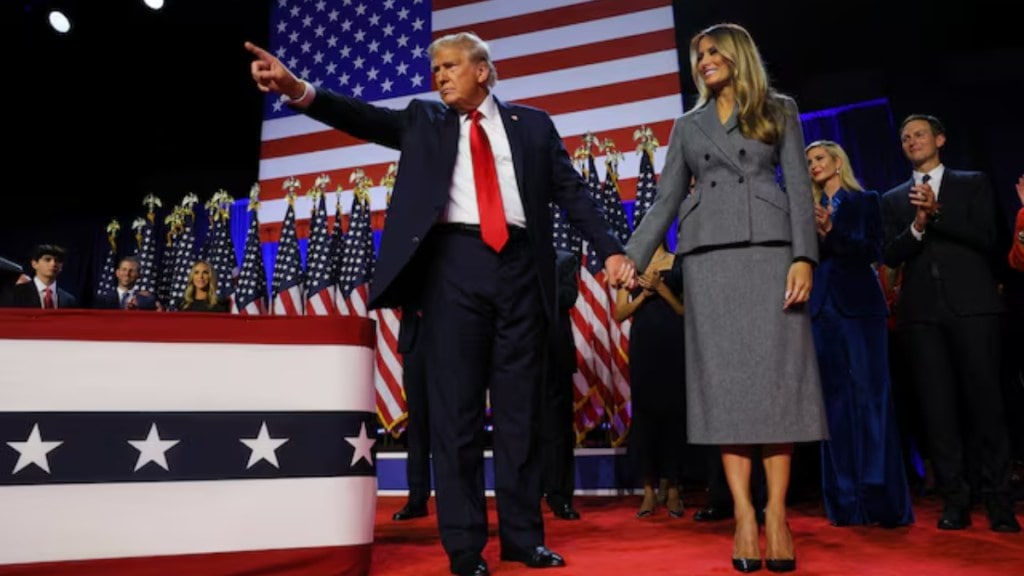As Donald Trump prepares for his second term as the 47th President of the United States on January 20, 2025, his inauguration is shaping up to be a momentous occasion on the world stage. The guest list, which includes a combination of populist leaders, key allies, and global powerhouses, highlights the evolving nature of U.S. foreign policy under Trump’s leadership. Notably, China and Argentina stand out, with China being the first foreign government invited, while Argentina’s presence reflects the growing alignment between Trump and the Latin American country’s new leadership.
China: The First to Be Invited, but a Cautious Approach
In an unexpected diplomatic move, China was the first country invited to Donald Trump’s 2025 inauguration, reflecting the strategic importance of U.S.-China relations. However, the invitation was not without complications. Initially, there were hopes that Chinese President Xi Jinping might attend in person as a symbol of diplomatic engagement between the two superpowers. Yet, Xi has opted not to attend, sending a senior representative instead. Vice President Han Zheng or Foreign Minister Wang Yi is expected to represent China at the ceremony.
This decision to send high-ranking officials rather than Xi himself reflects China’s cautious approach to U.S. relations in the current geopolitical climate. While trade tensions, military concerns, and issues like Taiwan continue to strain ties, China’s decision to participate diplomatically signals its commitment to maintaining open lines of communication with Washington. Even without Xi’s presence, the participation of top Chinese officials underscores the ongoing importance of U.S.-China dialogue, particularly as the two nations navigate their complex relationship in an increasingly multipolar world.
Argentina: A Populist Ally from Latin America
A significant presence at Trump’s second inauguration will be Argentina, with President Javier Milei confirming his attendance. Milei, who was elected in 2023, is a figure known for his libertarian economic policies, which include radical free-market reforms and a firm stance against government intervention. His populist rhetoric and economic agenda align closely with Trump’s own “America First” philosophy, particularly in terms of promoting deregulation and reducing state control over the economy.
Milei’s attendance is especially symbolic, as it reflects the growing alignment between Trump and Latin American populist leaders. Argentina’s participation in the inauguration further strengthens the ideological ties between Trump’s administration and countries in the region that share his skepticism of left-wing ideologies and globalist frameworks. This relationship may also open the door to closer economic ties between the two nations, particularly in areas like trade and investment.
European and Latin American Populist Leaders
In addition to Argentina, Trump’s inauguration will feature other notable populist leaders from Europe and Latin America, many of whom share his nationalist and conservative values. Nayib Bukele, the president of El Salvador, will also attend. Bukele’s leadership, marked by a tough stance on crime and his controversial moves toward centralizing power, mirrors Trump’s populist style and his unorthodox approach to governance.
In Europe, Giorgia Meloni, Italy’s far-right prime minister, will likely be in attendance. Meloni’s policies, which focus on nationalism, anti-immigration, and strong borders, align closely with Trump’s own political platform. Similarly, Viktor Orbán, Hungary’s long-serving prime minister, is expected to attend, underscoring his continued alignment with Trump’s populist agenda. Orbán has been a staunch defender of national sovereignty and has resisted European Union policies, views that resonate with Trump’s opposition to international organizations and regulations.
Diplomatic Representation from Major Powers
Alongside populist leaders, several other key global powers are sending diplomatic representatives to Trump’s inauguration. The United Kingdom, as a long-time U.S. ally, will likely be represented by Prime Minister Rishi Sunak or another senior official. The U.S.-UK “special relationship” remains central to both countries’ foreign policy, particularly in the areas of defense, trade, and global security.
Japan, a critical partner in the Indo-Pacific region, will also send a senior representative. Japan’s strategic relationship with the U.S., especially in terms of regional security and trade, makes its attendance significant as tensions in the Indo-Pacific continue to rise, particularly with China. Similarly, Poland and Turkey are expected to send high-ranking officials, reflecting their strategic importance to the U.S. in Europe and the Middle East.
A Polarized Event with Global Implications
Trump’s second inauguration is poised to be a highly polarized event, both within the United States and internationally. The guest list reflects not only Trump’s personal ideological network but also the broader rise of populist, nationalist movements around the globe. The attendance of leaders like Milei, Bukele, Meloni, and Orbán signals the growing strength of populist agendas in Europe and Latin America, further solidifying Trump’s place within this international movement.
At the same time, the participation of key diplomatic figures from China, the United Kingdom, and Japan underscores the continuing importance of traditional alliances and the U.S.’s role in global diplomacy. The event will serve as a crucial moment for Trump to reaffirm U.S. relationships with both populist allies and global powers, showcasing the delicate balance of domestic politics and international strategy that will define his second term.
In sum, Trump’s second inauguration will be a defining moment not only for U.S. politics but also for the global political landscape. With China as the first invited guest, Argentina’s attendance as a rising populist ally, and a broad array of leaders from across the ideological spectrum, the event promises to offer a glimpse into the future of U.S. foreign policy and the shifting dynamics of international relations under Trump’s leadership.

